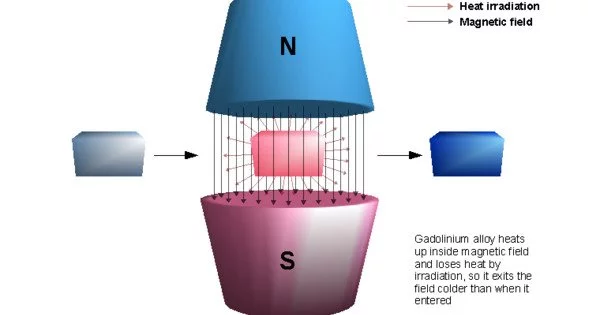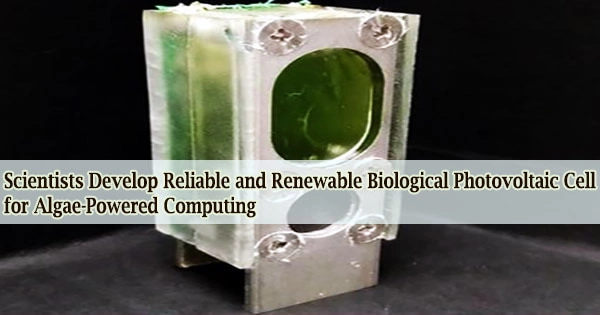Magnetic refrigeration is a cooling technology that uses the magnetocaloric effect to achieve refrigeration. The magnetocaloric effect is the phenomenon where certain materials experience a change in temperature when subjected to a changing magnetic field. This technique can be used to achieve extremely low temperatures as well as the temperature ranges found in standard refrigerators.
The basic working principle of magnetic refrigeration involves the use of a magnetic material that can be magnetized and demagnetized using an external magnetic field. When the material is magnetized, it absorbs heat from the surrounding environment, and when it is demagnetized, it releases the absorbed heat.
When a magnetic field is applied to a magnetocaloric material, it warms up. The heat is released as a result of changes in the internal state of the material. When the magnetic field is removed, the material reverts to its original state, absorbing heat and returning to its original temperature. To achieve refrigeration, the material is allowed to radiate heat away while magnetized hot. After the magnetism is removed, the material cools to below its original temperature.
In a magnetic refrigeration system, the magnetic material is placed in a magnetic field that is cyclically varied, causing it to go through a repeated cycle of magnetization and demagnetization, which in turn causes it to absorb and release heat. The heat is then transferred to a heat sink, which dissipates it to the environment.
Compared to conventional refrigeration technologies that use compressors and refrigerants, magnetic refrigeration offers several advantages, such as higher energy efficiency, lower environmental impact, and better reliability. However, it is still a relatively new technology and is not yet widely used in commercial applications.
A magnetic refrigerator is an environmentally friendly device that can significantly reduce power consumption. The latter circumstance is critical given the truly massive number of refrigeration units used by man in various fields of his activity. Magnetic cooling technology is based on the ability of any magnetic material to change temperature and entropy when subjected to a magnetic field. This ability is demonstrated when compressing or expanding gas or steam in traditional refrigerators. The magnetocaloric effect (abbreviated MCE) is a change in the temperature or entropy of a magnetic material caused by a change in the strength of the magnetic field.
















